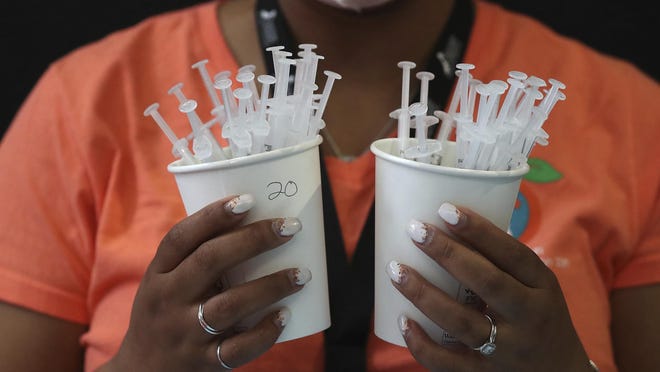The COVID-19 vaccine from drug company Pfizer and its German partner BioNTech vaccine is safe for and extremely effective in adolescents, according to a company-sponsored study released early Wednesday.
In adolescents 12 to 15 years old, vaccination led to a higher protective antibody response than in adults and was seen to be 100% effective against symptomatic disease, the study of 2,260 adolescents found.
The two-shot Pfizer-BioNTech vaccine had been authorized for use in those 16 and up based on previous trials, but not in younger adolescents.
Last week, the companies began testing their vaccine in children ages 5 to 11; next week, they will begin testing in ages 2 to 5, and later will look at children 6 months to 2 years. Results from those trials should be available later this year.
Moderna, which also has a COVID-19 vaccine, has been studying its shot in teenagers since December, and launched a trial in younger children in mid-March. That vaccine is not yet approved for use in older teens.

Pfizer-BioNTech plan to submit their adolescent data to the U.S. Food and Drug Administration to ask that their authorization to provide BNT162b2 be quickly amended to include that age group. It’s not clear how long the FDA will take to review the request.
Albert Bourla, chairman and CEO of Pfizer, said in a prepared statement that he hoped to make the vaccine rapidly available to younger adolescents.
“We share the urgency to expand the use of our vaccine to additional populations and are encouraged by the clinical trial data from adolescents between the ages of 12 and 15,” he said. “We plan to submit these data to FDA as a proposed amendment to our Emergency Use Authorization in the coming weeks and to other regulators around the world, with the hope of starting to vaccinate this age group before the start of the next school year.”
All participants will be monitored for two years after their second dose to track long-term protection and safety.
